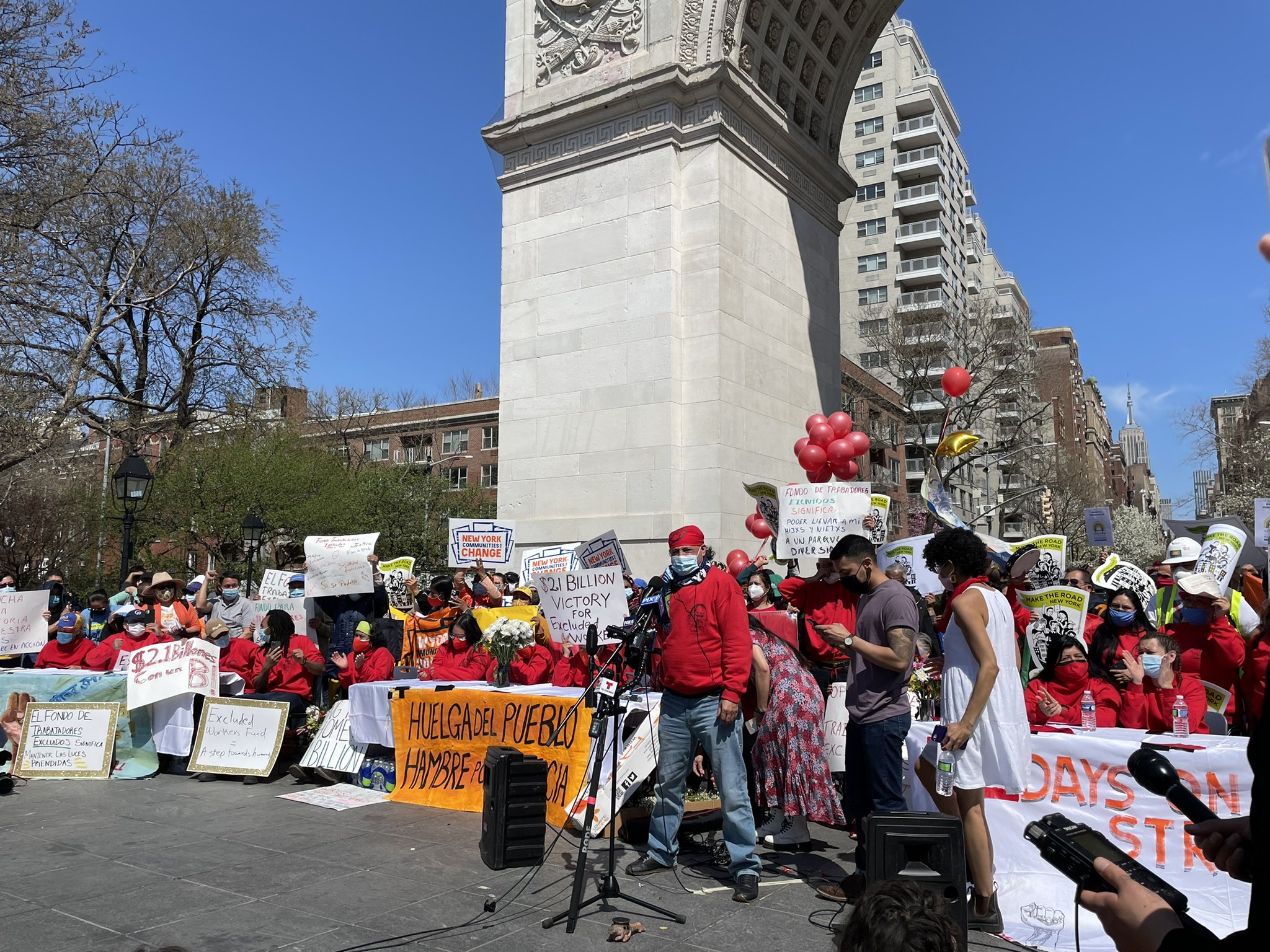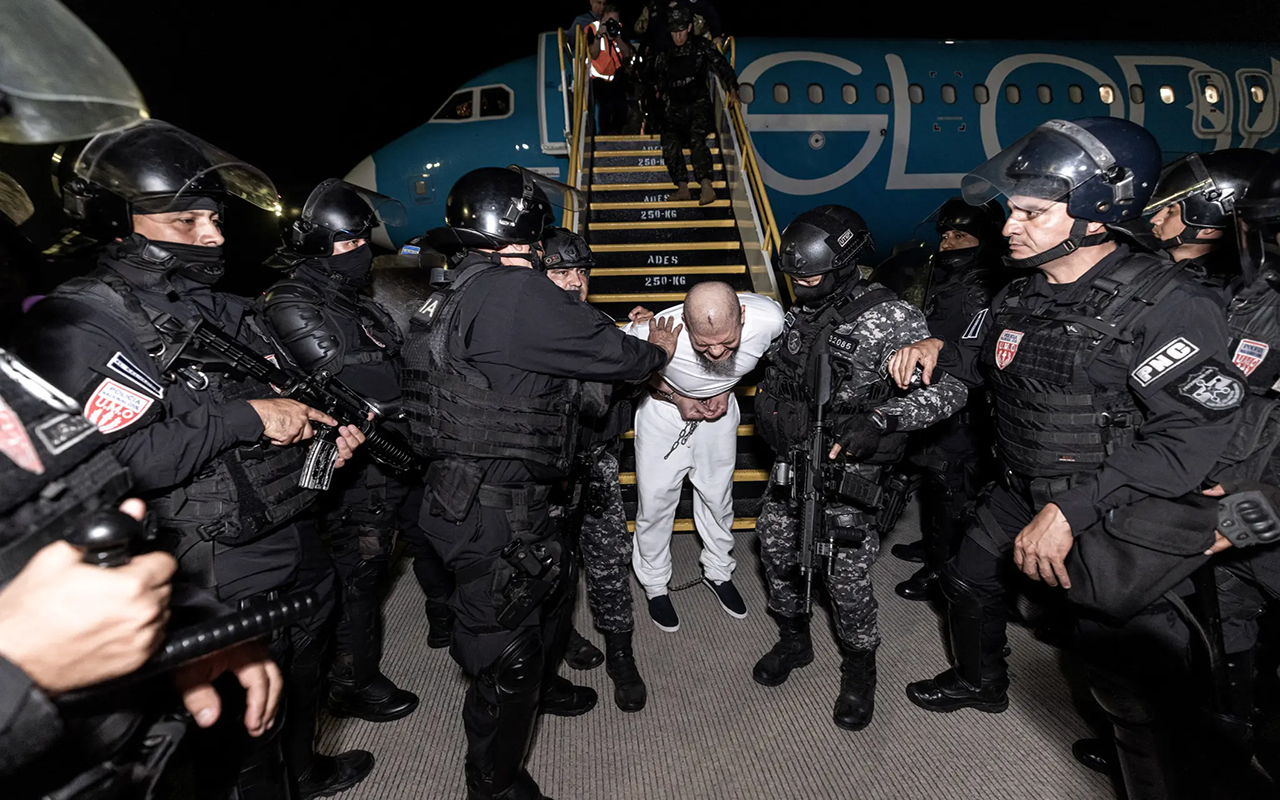
$2.1 billion for undocumented immigrants in New York sees them finally get the COVID relief they deserve
The fund created by the New York legislature grew out of the activism of Make the Road NY and other grassroots movements.
Following a year-long fight that culminated in a 23-day hunger strike led by Make The Road NY, state leaders agreed on a deal that includes a $2.1 billion fund for excluded workers — the first of its kind in the U.S.
On Tuesday, April 6, the New York State legislature struck a deal with Gov. Andrew Cuomo to provide much-needed financial relief to people who have been excluded from receiving aid from the coronavirus stimulus packages passed by Congress.
VICTORY! NY budget includes $2.1 billion to #FundExcludedWorkers!
— Make the Road NY #FundExcludedWorkers (@MaketheRoadNY) April 6, 2021
This fund will support immigrants excluded from relief at a level that reflects a year without income.
GRACIAS @FEWCoalition allies & the fierce hunger strikers who put their bodies on the line for 23 days! pic.twitter.com/W4rqqF33UR
Advocates of the fund praised this arrangement as a major win. The Fund Excluded Workers Coalition took to Twitter to celebrate the achievement and congratulate all the hard work the group exerted leading them to this triumph.
“This victory comes after one year of statewide organizing efforts from the #FundExcludedWorkers Coalition — led by impacted workers, culminating in two hunger strikes,” they wrote, adding that their dedication to and passion for the cause created a historic moment.
VICTORY! ¡VICTORIA! #FundExcludedWorkers pic.twitter.com/tvALkoE1IY
— #FundExcludedWorkers (@FEWCoalition) April 7, 2021
Some states and cities like Seattle and California have raised funds to provide pandemic relief for undocumented workers, but none of these funds came close to the amount of money that New York legislature settled on.
The fund’s intention is to offer financial assistance to groups that have been excluded from federal pandemic stimulus checks, such as undocumented workers and formerly incarcerated individuals.
Undocumented people, many of whom work in hazardous positions on the frontline of the pandemic, like agricultural work and warehouse jobs, have been excluded from COVID relief, even though they pay billions of dollars in state and local taxes each year.
Meanwhile, incarcerated people often have their relief checks taken from them by prison authorities. Many people who were released from prison either before or during the pandemic also faced exclusion as they hadn’t yet built up the work history to qualify for the package.
Over the past year, social justice advocates have rallied against the injustices faced by undocumented and formerly incarcerated individuals. Last year, the Fiscal Policy Institute (FPI) released a report which showed that 1.2 million New Yorkers were completely overlooked and did not receive unemployment assistance and stimulus checks.
Last May, Cyierra Roldan of FPI, said that the state is obligated to protect and assist vulnerable populations, especially if the federal government chooses to continue promoting anti-immigrant policy and discrimination.
“A pandemic is no time to discriminate,” Roldan said.
Starting last Spring, organizations and advocates that make up the Fund Excluded Workers Coalition have been staging marches and strikes, organizing phone banking campaigns, and eventually staged a 23-day hunger strike.
For many immigrant New Yorkers who lost income during the pandemic, this fund will put the cash into their hands that they so desperately need and deserve. For too long, many people were forced to rely on food pantries, sacrifice basic needs like medicine, all while debts were stacking up.
RELATED CONTENT
Eliana, @VendorPower member and street vendor for 38 years, went on hunger strike and with the “women leaders of the strike, the mothers. I cried when I heard the news - it is a triumph for me and my people. I can finally pay my debts.”#FundExcludedWorkers https://t.co/SvH1lyppQy pic.twitter.com/nspkyrz4X7
— #FundExcludedWorkers (@FEWCoalition) April 7, 2021
Make The Road NY, the progressive grassroots movement that serves and uplifts immigrant and working-class communities, argues that New York has plenty of resources and could have provided even more for excluded workers. The organization also regrets that formerly incarcerated New Yorkers are not included in the relief.
A statement from our Director in response to the passage of #FundExcludedWorkers:
— Release Aging People in Prison Campaign (@RAPPcampaign) April 7, 2021
"While we are elated for undocumented New Yorkers across the state...it is wrong that this critical program does not include formerly incarcerated people..." pic.twitter.com/HFuuVwfAOj
But the organization still views this fund as a massive victory for the 200,000 excluded undocumented workers.
Tuesday’s deal also implemented a $2.4 billion emergency rental assistance program that will help tenants across the state, including undocumented people, to pay off rent debt accumulated during the pandemic.
“We will continue to fight alongside you to expand tenant protections, stop unjust evictions and eliminate homelessness in New York State,” the organization said in a statement.
In addition, the deal establishes a tax increase on the ultra-wealthy, so public education and other vital services can receive better funding.
According to Make the Road NY, this will ensure a three-year phase-in of the more than $4 billion owed to New York’s high-needs public schools after 15 years of organizing for school funding equity.
This is historic, the NYS legislator has agreed to phase-in the full Foundation Aid owed to NY's schools!
— Jasmine Gripper (@Jasgripper) April 6, 2021
"for the two thousand twenty-three--two thousand twenty-four school year and thereafter the foundation aid phase-in increase factor shall be one hundred percent."
We won!
Despite a few compromises, the $2.1 billion fund remains the most ambitious effort to provide excluded workers with relief in the country. California’s relief program for undocumented immigrants offered $500 million in aid but could only fund 150,000 people.
The state is home to nearly 2.2 million undocumented people.
Chicago, Seattle, Austin and Washington D.C have created similar programs, but many of them fall way too short of providing sufficient aid.
“It is clear that while these government and private initiatives are providing help where otherwise there would have been none, these efforts are no match for the scale of need,” wrote the Migration Policy Institute.










LEAVE A COMMENT: